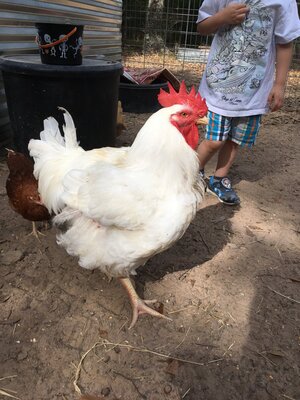Mistycarmony84
In the Brooder
- Aug 25, 2020
- 18
- 17
- 34
We have a 5 month old Cornish cross, still happy healthy and moving, but he is now trying to breed our Rhode Island reds and golden sex links. We are worried about him hurting our girls Any advice would be appreciated. We just want to know what should be the weight limit on any rooster for our girls.




